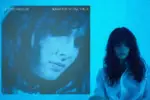With the international success of BTS, BLACKPINK, EXO and many other Korean groups, K-pop has had a huge impact on global pop culture. Along with that fame, the idea of K-pop has also been up for debate. What is K-pop? What qualifies a group as a K-pop group? The debut of the UK’s first K-pop girl group, KAACHI, leads us to revisit these questions.
KAACHI made their official debut in late April with their first single, “Your Turn.” The four members, Nicole, Coco, Dani and Chunseo, are all of different nationalities, granting the group a “global” status. According to Essex Magazine, the group’s name means “Togetherness, Value and Unity,” which symbolizes their common love for Korean music despite their different cultural backgrounds.
Their single, “Your Turn,” has a lot of potential, but their singing needs some improvement if they are going to compete with the traditional Korean groups. Although more vocal training is necessary, their dance moves are rather impressive. Perhaps singing is not their strongest attribute, but all four members were either originally professional dancers or have years of dancing experience.
After their debut was announced, KAACHI faced a lot of criticism from K-pop fans around the world. People have gone on Twitter, Reddit, TikTok and other social media sites to oppose the idea of a European K-pop group.
A K-pop fan on Twitter argued that KAACHI is problematic and shouldn’t call themselves a K-pop group because they have not taken the time to fully learn Korean and Korean culture. A user from Reddit commented, “They are free to make music, but they have no right to call their music ‘K-pop’ just because they say 3 words in Korean.”
#KAACHI_DISBAND The problem with this group is not the fact that they're from UK or something like that, is the fact that they didn't take the time to learn korean or even their cultureand they're trying to take advantage of the K-pop phenomenon, two words CULTURAL APPROPRIATION
— HueningKaiWife (@DianaHuening) May 6, 2020
Despite the hate they’ve gotten within the first few weeks of their debut, the group has also received some support. There are people who defended KAACHI, claiming they’re “not that bad.” Evidently, the rookie group has been getting more hate than they deserve. People have been spreading a lot of false rumors about the members and their label, FrontRow Records, which has led to various misleading accusations.
FrontRow Records’s director and KAACHI’s producer, Monica Lee, said that the group was created to promote K-pop with a British twist in the Western market. In a YouTube video, Lee explained that KAACHI is K-pop because “K-pop is a new genre, like hip hop. Obviously, K-pop roots from Korea, but it is now a global [genre].” She further justified, “A lot of Korean music are also influenced by Western music and now K-pop also influences a lot of Western artists,” which asks us to reconsider why KAACHI is or is not a K-pop group.
What Lee said made a lot of sense. If we understand K-pop as a genre of music, it’s plausible that it is open for anyone to adopt and alter. Even within the category itself, the styles are so diverse that we may not be able to pinpoint exactly what kind of music is purely K-pop. But why is KAACHI receiving so much hate for adopting an increasingly popular music style?
Part of the reason for this is the false claim that KAACHI was created by Simon Cowell in his mission to establish UK-pop. The rumor provoked people into thinking that the girl group is just another attempt to hijack the success of Korean musicians. This claim was quickly disputed by lead producer Monica Lee. She emphasized that as a Korean herself, her goal is to promote K-pop and Korean culture and never to insult Koreans. Still, Lee’s explanation did not pacify the critics, who keep saying that KAACHI is not K-pop.
K-pop, in its simplest definition, is a genre of pop music from South Korea that mixes genres like rock, hip-hop, R&B and electronic dance. On a deeper level, K-pop has some unique characteristics. These features include artists who are mostly Korean or Asian, songs that are mostly sung in Korean, extensive years of systematic training and sharp, uniformed choreography.
Thus, not all groups can be K-pop. Even if we forget about the race factor, can a song be a K-pop song if it’s not sung in Korean? Wouldn’t it just be pop music?
This is where most of the constructive criticism toward KAACHI comes in. Few non-Korean artists have found love and respect in the realm of K-pop like Tzuyu from TWICE, Mark from NCT and the Russian K-pop soloist Lana. However, all of them went through years of training, from singing to acting, and have learned the Korean language and culture.
The main problem with KAACHI is that the members don’t seem ready to become K-pop idols, with little knowledge of Korea and arguably poor singing ability. They may send the wrong message to the general public that K-pop is not to be taken seriously.
The crucial factor that may make or break KAACHI’s entrance into K-pop is whether or not they improve their skills. Their future projects have to demonstrate that they take being K-pop idols seriously, just like any other idol in South Korea.
https://www.instagram.com/p/B_7Wwz-jqOI/?utm_source=ig_web_copy_link
Additionally, Korean music is a part of the hallyu wave and cannot be separated from the promotion of the country’s culture. So it’s also important for KAACHI to be able to incorporate Korean pop culture into their projects.
If the group succeeds in doing so, we might see an even brighter and diverse future for Korean pop music. Perhaps K-pop can be accepted even more around the world, by both Asian and non-Asian communities.
They were not created to replace Korean or Asian artists, as the critics seem to imply. As a genre, K-pop should be fluid in terms of who can use it. The genre itself has no limit, so why should we monitor who can or cannot be a K-pop artist?
However, we also have to realize that K-pop contains a large cultural significance. For a long time, K-pop artists have tried to break into the Western music industry, unapologetically singing in Korean. After decades, they are finally getting the recognition they deserve, as exemplified by BTS’ success.
Even though KAACHI may normalize K-pop in European and American markets, the group could also strip K-pop from its Korean origin. Still, KAACHI is merely a rookie group, and they should be given the time and space to grow as we observe how their career will turn out.

















